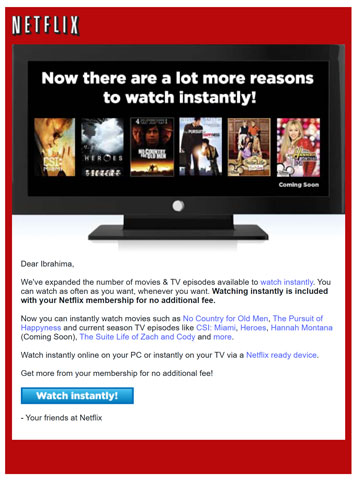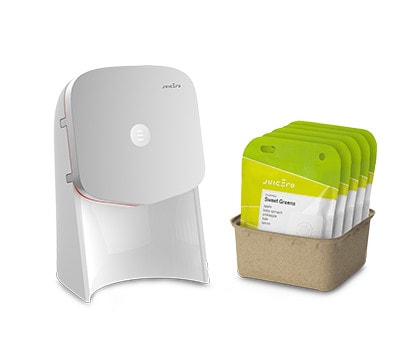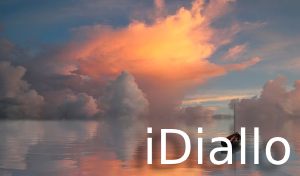I've rented Apocalypto more times than I care to admit. Every time I placed it in Netflix's red envelope and mailed it back, my father would ask where the DVD was. A couple days later, it would arrive in the mail again, and like clockwork, I'd hear those jungle drums booming from his bedroom. He'd slip away during family movie nights, "just going to the kitchen" or "bathroom, don't pause it. I'll be right back." But we all knew where he was headed. That movie consumed him.
Eventually, I upgraded to Netflix's 3-DVD plan because I knew at least once a week, my father would want to disappear into his favorite films. For $17.99 a month, we had access to everything: Ben-Hur, Spaghetti Westerns, Chuck Norris marathons. No more awkward trips to Blockbuster asking for movies from before my time. When I really loved something, I'd just buy the DVD.
This was peak convenience. One service, everything you wanted, reasonable price. We also had Dish Network with DVR, but that was $29 introductory (jumping to $100 when you weren't looking) for channels we'd never watch. Netflix was pure signal, no noise.
When Netflix launched their streaming service, I was skeptical. My 1.5 Mbps AT&T connection could barely handle YouTube without buffering. The streaming selection was terrible. They had a handful of B-movies and documentaries nobody wanted. The quality of DVDs was unmatched. So I dismissed streaming entirely.

Netflix watch instantly — 2008
But then something magical happened. By the time I had TimeWarner cable with real bandwidth, Netflix streaming had become the one-stop shop for everything. Every movie I cared about, instant access, $8 a month. I canceled my TV package. Local news was free over the air, YouTube worked on my TV, and Netflix was a click away. This felt like the future.
If Netflix's DVD service had killed my need to torrent movies, streaming obliterated it completely. Why pirate when everything was right there, legal, convenient, and cheap? While moving, the DVD players were misplaced, we didn't even notice their absence.
This was streaming's golden age. We just didn't know it would be so brief.
The Great Fracture
You probably know how this story ends. Want to watch Pokémon today? Here's your treasure map (as of 2025):
- Seasons 1-5: Netflix
- Seasons 6-19: Hulu (with ads)
- Season 20: Prime Video (rental only)
- Pokémon Journeys: Peacock Premium
- The banned "Beauty and the Beach" episode: Pirate Bay or dusty VHS
- Pikachu's Winter Vacation shorts: YouTube (free, buried in 480p)
- New specials: Pokémon TV app (region-locked)
You need 6+ services, a VPN, and a prayer to Arceus. Total cost: ~$85/month. The same as that old cable package. Congratulations! You've unlocked the "Convenience" achievement.
What we missed during the golden age was the licensing game happening behind the curtain. Netflix was licensing content when they were the only game in town. But as every media company built their own platform, those licenses expired and content scattered to the winds.
Imagine having a perfectly good juicer at home, even a selection of fresh fruits, but not being able to make juice because you have the "wrong type" of fruit. That's streaming today. You have the internet, you have the device, you even have multiple subscriptions. But you want to watch something specific? Sorry, that's a Disney+ orange and you only have a Netflix juicer.

Netflix Subscription Upgrade — 2007
We All Laughed at Juicero
Remember Juicero? In 2017, Silicon Valley's most ridiculous startup launched a $400 Wi-Fi-enabled juicer that only worked with proprietary $8 juice packets. The internet had a field day when people discovered you could just squeeze the packets by hand. The company collapsed within months, becoming the poster child for Silicon Valley excess and artificial scarcity.
We all laughed. How could anyone be so stupid? Who would pay premium prices for artificial limitations? Who would choose a restricted, expensive system over simple, direct solutions?
Turns out: all of us.
Streaming became the Juicero we all bought, just with better marketing:
- The overpriced device: Your collection of streaming subscriptions ($10–20 each, totaling $80+ monthly)
- The proprietary packets: Platform exclusives you can't get anywhere else
- Hand-squeezing: Pirating! one click, no restrictions, no monthly fees
The business model is identical. Create artificial scarcity around content that should be universally accessible. Lock it behind expensive, proprietary systems. Make the alternative technically illegal.

Juicero
In Juicero's defense, at least they gave you one device. Streaming makes you buy multiple "juicers" that each only work with specific "juice packets." Want the full experience? That'll be six subscriptions, please.
The Double Standard
The metaphor gets darker when you consider enforcement. Imagine if juice companies had been squeezing fruit by hand for decades to make their products, got caught, and faced zero consequences. But individual consumers found warnings on their fruit: "Hand-squeezing carries penalties of up to 5 years imprisonment and $250,000 in fines."
This is streaming today. AI companies download entire libraries of copyrighted content to train their models, with complete impunity. OpenAI, Google, Meta, they've all admitted to using copyrighted material without permission or compensation. No lawsuits, no penalties, no problem.
Meanwhile, individuals face bankruptcy-inducing lawsuits for downloading a single movie. The system criminalizes individual convenience while rewarding corporate theft at massive scale.
What We Actually Lost
Streaming didn't solve a problem we had. DVDs worked fine. Netflix's innovation was convenience: no late fees, vast selection, reasonable price. The promise was simple: make content more accessible, not less.
Instead, we got the Juicero model dressed up as progress. Artificial scarcity masquerading as innovation. Corporate control disguised as consumer choice. Not only did we buy into the Juicero, but the companies also started pulling the physical fruit from the shelves. Now, many new movies aren't even available in a physical format. When you "buy" digital content, your ownership lasts only until licensing terms change.
My father never lived to see this streaming revolution. Instead, I bought him Apocalypto on DVD with commentary. He never removed it from his five-disc player. It was the last movie he watched before he passed.
Some things are too important to trust to corporate servers. Some things deserve to exist in your hands, on your shelf, forever. The Juicero era taught us that "disruption" often means taking something that worked and making it worse, then charging more for the privilege.
We all mocked Juicero's absurd business model. Then we signed up for Netflix, Disney+, HBO Max, Hulu, Prime Video, Peacock, and Paramount+.
The joke, as it turns out, was on us.
The drums still echo.





Comments(4)
Robert :
Thank you for your thoughtful articles! I enjoy them quite a bit. I wanted to send some money your way via ko-fi, but when I try, I get a "choose how to donate" dialog with zero options. Not quite sure what’s going on there.
At any rate, thanks a lot for sharing your thoughts!
Ibrahim author :
Hi @Robert, I appreciate your comment. And thank you for letting me know that donations are not working! Turns out I have to accept some new Terms of Service before I can accept donations!
Either way, always nice to get good feedback to keep me going.
Thank you.
Jakk :
I've enjoyed perusing your site! This article was particularly interesting bc of all the nostalgia and whatnot. Ahh, the Netflix DVDs - we really did do that, pick a movie and wait for the mail! Even as a memory that feels painfully slow.
I almost immediately ditched everything physical for digital everything - I've not really regretted the decision, we'll see if streaming becomes less accessible in the future. I might have a different opinion at that future time but so far I've had almost only gains from the decision.
I did used to have an emergency USB Media jump drive bc of a bad hotel internet experience one weekend away.
I haven't had a disc drive on a computer for 12-15 years at least. I have exclusively used computers to access digital media for my adult life. I've not owned a DVD player since high school.
I mean none of this badly, or like some weird humble brag - I genuinely don't miss DVDs or physical media at all tbh. Occasionally I read a real book made out of paper.
I like your website - have an awesome day!
Ibrahim Diallo author :
Hi @Jakk. Today, I don't own a dvd player either. I do own DVDs, they are buried somewhere in the garage, and I don't think I'll be buying a player anytime soon.
But there is a reassurance in knowing that you own something. That, if you wanted to you could watch it without involving any third party. I miss DVDs in that sense, my own personal media resides in a collection of terabyte hard drives.
Thank you for being a reader and adding your voice to this discussion. Here is to hoping you don't own a Juicero!
Let's hear your thoughts